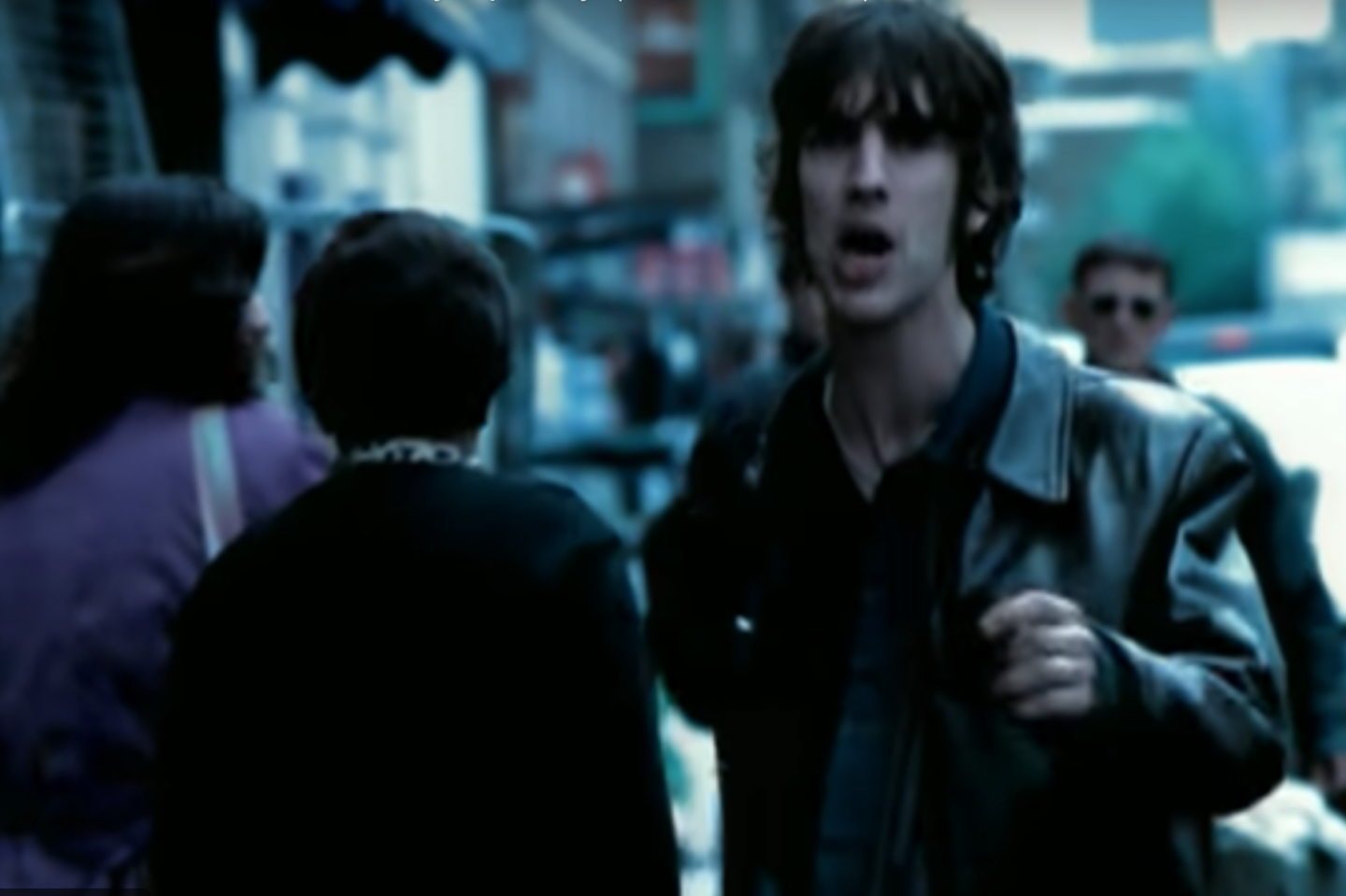The song that was, is and will forever remain the unapologetic anthem of what it is to be a human in “civilized society” (no matter what guise capitalism may take on in the future) is, of course, “Bitter Sweet Symphony” (one will never know why the spelling isn’t “bittersweet”). The Verve’s biggest hit of their career, released in 1997, was also, ironically, something they made no money off of thanks to a legal embroilment involving The Rolling Stones (specifically their single, “The Last Time”) and The Andrew Oldham Orchestra, who decided to create instrumental versions of The Rolling Stones’ biggest hits in the 60s in the spirit of The Beatles’ producer, George Martin.
With The Verve’s producer, Martin Glover, being the one to suggest the instrumentation “inspired by” Andrew Oldham, the band’s lead singer, Richard Ashcroft was suddenly enthusiastic about the song again, though he had initially considered tossing it from the album altogether. The only issue now was permission, which they got from Decca but not ABKCO, who owned all the music publishing rights to Stones songs. Realizing this all too late, the head of EMI, Ken Barry, got off his fat cat arse to go to New York and plead with notoriously nefarious Allen Klein, The Beatles’ manager in the wake of Brian Epstein, and the one calling the shots on the ABKCO side of things. Seeing (and hearing) an opportunity to capitalize on The Verve’s tight spot, Klein proposed a 50/50 split of the royalties which soon turned into 100% once he sued them when the single began to top the charts. It was thus that Mick Jagger and Keith Richards not only shared songwriting credits with Ashcroft, but also profited heavily for a song they never really had anything to do with. Soon, Andrew Oldham would get in on the sucking of the “Bitter Sweet Symphony” tit dry, throwing in his own 1.7 million dollar lawsuit despite the original arrangement actually being composed by David Whitaker, who never saw any credit to his name and certainly not any money.
Going deeper still into the egregious “white man’s creativity for profit” phenomenon, the lyrics to the “The Last Time” itself were sampled from The Staple Singers’ “This May Be The Last Time.” A song from a tradition of black hymns that no one could technically lay claim to for rights until the music industry’s proverbial Whitey came along to make a dollar off of it. With all of this said, there is particular cogency to The Verve’s accompanying video (directed by The Prodigy go-to Walter Stern) for the track, in which we see a lone and disgruntled Ashcroft beginning a simultaneously determined and purposeless walk at the corner of Hoxton and Falkirk Streets in London’s East End. His refusal to move out of the way for any of the many little assholes that expect him to purely because of social decorum is likely a testament to his sentiments at the time. After all, how many more people did he have to bow to in order to put this fucking song out? To boot, the video also builds upon the original concept from which the band drew from (because, clearly, “Bitter Sweet Symphony” was a hodgepodge of inspirations–except Massive Attack wasn’t a dick about letting The Verve’s inspiration flow), “Unfinished Sympathy.” Styled as a docu-fiction and directed by Baillie Walsh as he filmed then Massive Attack member Shara Nelson walking in a state of lovelorn “just going through the motions” depression starting from 1311 South New Hampshire Avenue to 2632 West Pico Boulevard in one continuous shot, Ashcroft takes her sadness and repurposes it into rage. For isn’t depression anger turned inward, as the Freudian platitude goes?
He is forced only at one point to stop his clamoring-to-be-acknowledged gait: when a car nearly runs him over and he has no choice but to look at his own reflection in the window. A reflection that reminds him he is an adult, yet somehow in possession, more than ever, of all the so-called puerile sentiments of adolescence: rage, contempt, despair and, foremost of all, refusal to accept that “this is how it is.” A.k.a. you must “Surrender Dorothy,” give your soul to the highest bidder in exchange for securing your livelihood. That the success of “Bitter Sweet Symphony” didn’t secure much of a livelihood for the band makes the motif of the song and video all the more salient. As of 2019, Jagger and Richards finally signed the rights to the song and its royalties back over to Ashcroft. Would that they could have done so before tying the track to a Nike and Opel commercial, not to mention its key association to Cruel Intentions (though that isn’t the worst thing). In a case such as this, one has to ponder if too late really is better than never, as there’s not much relevancy factor to capitalize on for The Verve now in terms of getting any additional profit. Then again, at least they can keep it from ever being featured in a McDonald’s commercial.





















